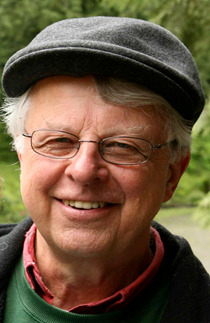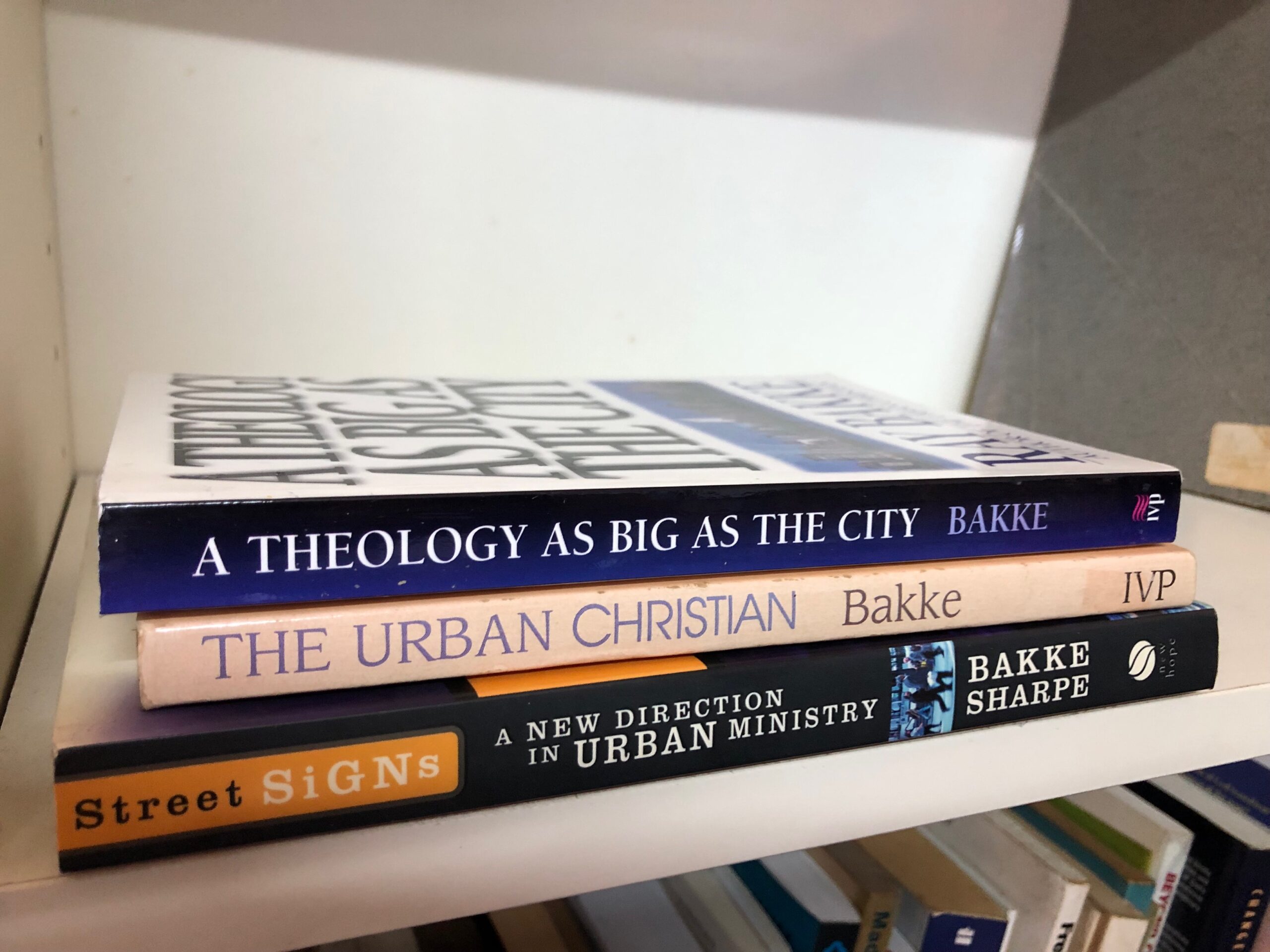In Memoriam: Honoring the Legacy of Urban Missiologist Ray Bakke

When my focus on cities became more crystallized, I found a set of talks on MP3 by Ray Bakke that to this day continue to give me handles for understanding. If one could have worn out an MP3, my repeat listening would have done the job. Bakke had a way of discussing the Bible that had direct relevance to urban ministry today.
When most people saw cities as a scourge on humanity, there was one who saw cities as places with potential and hope. Ray Bakke began to champion the importance of cities and the need for Christians to prioritize cities as a critical place to engage in the Great Commission. This statesman of urban missiology recently passed from this life to glorious life with Christ. His impact on those serving in cities around the world is immeasurable and continues to ripple through even the most forgotten neighborhoods.
The urban guru was born in 1938 in – unlikely – rural Washington state. Bellingham, a small community of 263 people, was 30 miles down a gravel road, well off the beaten path. Upon experiencing a calling to serve Christ, Bakke took a Greyhound bus to Chicago to attend Moody Bible Institute. The daunting city began to get into Bakke’s blood:
When I finally arrived in Chicago, I had a wow moment. My eyes must have bulged out of my head. The buildings were so big and there were so many of them. I instantly fell in love with Chicago. The city life was exhilarating for me. In those days I could get on a subway train for 25 cents and ride for 30 miles, all the time listening to the cacophony of languages of the people that lived in the city. I saw a variety of colors, smelled a multitude of aromas, and touched the diversity of the human fabric of life that made up the city. It was like being in a human zoo. Little did I know that I would spend the rest of my life being in or traveling to big cities all over the world.
He continued his studies at Seattle Pacific University where he came to see the heightened intellectual world of urban people. He began his work as a pastor in a small church in Seattle that needed an interim pastor. During this time, he met his wife Corean, and they began a family. They moved back to Chicago, where he pastored an inner-city church while he did graduate studies. The 1960s were tumultuous days for inner-city living, and Bakke and his family lived and served in the midst of it.
It became apparent that the church had little or no voice in the affairs of the city, and Bakke sought to address this issue in several ways.[2] First, he became a student of the city, coining the phrase “exegeting the city”. First, he went beyond the superficial understanding of cities and plunged deeper to discover who lived in the city, how they got there, and how city systems operated. Second, Bakke tried to learn everything he could from those serving in the city, regardless of background. Evangelicals were more aloof from the city, whereas Bakke found that he could learn a great deal from the “liberal” pastors in the city. Third, he began to study the Bible with urban lenses and discovered a vast treasure of ministry insights for modern cities. The fruit of this work can be found in A Theology as Big as the City.

With Bakke’s zeal for learning and his pastoral drive to see urban Christians thrive, it was not long before he was called upon to teach the things he was learning in a university setting. He taught at Trinity College, McCormick Seminary, and Northern Baptist Seminary. This gave him a sharpened academic platform as well as an enlarged circle of influence. Bakke began speaking widely about cities and started doing urban consultations around the world. This took him to more than 500 cities, engaging urban leaders at each stop. These consultations were intended to build networks that would solve urban issues innovatively, even earning recognition from the magazine Fast Company.[3]
When the global missions community was talking about people groups, Bakke was talking about cities. He penned the Lausanne Movement’s first document on “Christian Witness to Large Cities.” There has also been a steady stream of books and articles written by Bakke that continued to minister to many thousands seeking to serve in cities. Recognizing the lack of training for urban leaders at an academic level, Bakke started Bakke Graduate University (BGU). This non-residential doctoral program made it possible for pastors, professors, and leaders from every corner of the global to gain experience-based learning in cities, since Bakke believed that “cities expose us to perspectives that are important for the times in which we live.”[4] BGU has turned out leaders across the world with academic credentials that offer opportunities to influence many others.
Although I only met Ray Bakke once at a YWAM urban ministry center in the Tenderloin district of San Francisco, his impact on my life has been profound. Even in that gathering, Bakke was casting vision to a new generation of Christians seeking to make a difference in their cities. Thanks to Ray Bakke, the global church is better prepared to engage our ever-more-urban world.
[1]Raymond Bakke and Jon Sharpe, Street Signs: A New Direction in Urban Ministry (Birmingham, AL: New Hope Publishers, 2006), 21.
[2]Ray Bakke and Jim Hart, The Urban Christian: Effective Ministry in Today’s Urban World (Downers Grove, IL: IVP Academic, 1987), 23.
[3]Curtis Sittenfield, “Social Justice – Ray Bakke,” Fast Company, last modified November 30, 1998, accessed February 7, 2022, https://www.fastcompany.com/36319/social-justice-ray-bakke?page=0%2C1.
[4] Ibid.
